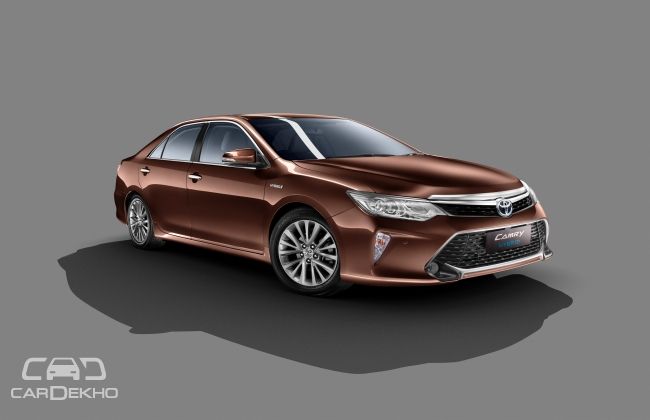Electric power helps Toyota hybrids stay with the sale of 8 million units
Modified On Aug 24, 2015 05:27 PM By Manish
- Write a comment
Over 8 million hybrid vehicles have been sold by the Toyota Motor Corporation, with just 10 months between this and the last million-unit milestone. It is not easy to contemplate what the number 8 million signifies for the owners or the environment. Toyota has deduced that as of July 31, a reduction of 58 million fewer tons of CO2 emissions is a result of its hybrid vehicles being picked over similar gasoline-powered vehicles, which offer same space and performance stats. In addition, Toyota also quantifies that its hybrid vehicles have reduced an approximate consumption of 22 million kiloliters of gasoline, which would have otherwise been consumed by gasoline-powered vehicles of similar sizes. Specific to India, 8 million fewer tons of CO2 emissions, which is about 3.55% of total CO2 emissions in India have been reduced. This translates into 22 million kiloliters of gasoline, which has been saved from consumption by gasoline-powered vehicles of similar sizes. This figure amount to around 13.3% of India’s annual Oil import.

In over 90 countries, as of this month, Toyota sells 30 hybrid passenger car models and a plug-in hybrid model. Toyota plans to launch new hybrid models like the Corolla Hybrid, Levin Hybrid (China only) and RAV4 Hybridm, along with new hybrid models being added to Toyota’s range, these cars will be sold in more markets than ever before.
In India history was created in Aug 2013 by Toyota Kirloskar Motor (TKM), as it launched the first ever locally manufactured hybrid – Camry Hybrid. India is the 9th country and/or region to manufacture Toyota hybrid vehicles in the world. The Camry Hybrid’s popularity increased in May 2015, after the launch of the all new Camry hybrid. The testimony to the raving incorporation of hybrids is the fact that at present Camry Hybrid accounts for more than 80% of the total Camry sales in India (including gasoline engine variants).
Toyota is also working on enhancing the non-hybrid cars by incorporating the advancements achieved in its hybrid technology, which includes improving performance, expanding its product lineup—including that of non-hybrid vehicles and reducing costs.















